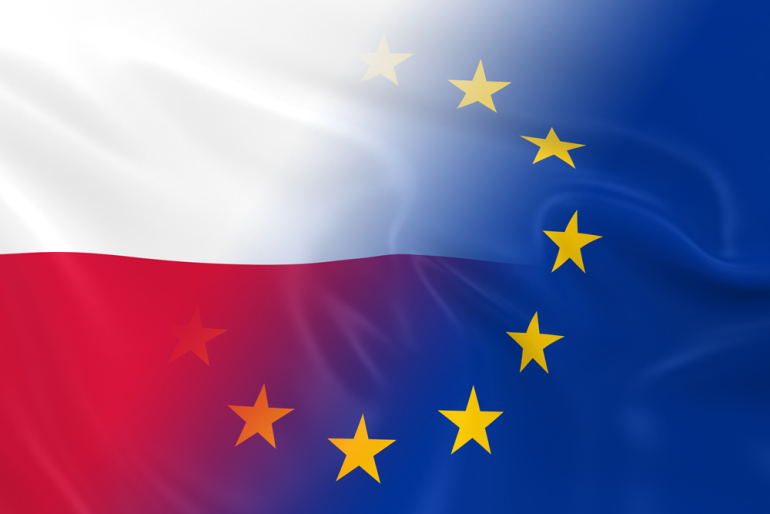Poland’s integration with the EU: Economic, regulatory, and political perspectives

About Poland’s integration with the European Union, economic, regulatory, and political perspectives writes Professor Artur Nowak-Far from Department of European Integration and Legal Studies, SGH Collegium of World Economy.
INTRODUCTION
It has always been crystal-clear that the process of Poland’s integration with the EU was definitely a bundle of inextricably intertwined economic, regulatory, and consequentially, also political endeavours. The political element prevails in the motivation for EU integration, as it has a decisive impact on what the EU Member States opt to achieve in the context of the EU. The so conceived political perspective emerges through economic policy decisions, which - obviously - have a strong political content and which, at the end of the day, are to be achieved in a specifically defined regulatory framework. This framework comprises various levels of economic policy enforcement which - normatively - should reinforce each other in an EU subsidiarity model of public intervention. This model extends not only inwards (where it represents an assessment of the EU internal effectiveness and efficacy), but also outwards (where it is meant to achieve some global leverage arising from any synergies which may emerge out of public policies cooperatively defined by EU Member States and executed by them). In other words, EU Member States (including, of course, Poland) opt to integrate with each other within the existing and emerging EU policy framework (on which they have their own impact) in the policy areas and to the extent likely to produce some value added, achievable only through a specific collective model of intervention where this value added is to emerge internally and/or internationally. The most fundamental political motivation for EU integration is usually defined in terms of political liberal pacifism. This motivation, quite important for Poland, implies that states which care about their ever increasing economic cooperation with other states, are not likely to solve any dispute which may arise between them by making recourse to military power.
Moreover, for many European post-colonial powers, with their high trade creation potential, EU integration represented an imperfect substitute for their colonial policies. For obvious historical reasons, Poland was among those EU Member States which shared the former motivation but by no means the latter one.
Irrespective of motivation, EU Member States wished to address “the global competition odds” which have been prevalent in the long run (since the second half of the 19th century) and which, for quite a long period of time, produced a noticeable decrease of the European countries’ share in global exports and in what can now be approximated as the European GDP share in the global GDP.
Nowadays, European integration is also considered to guarantee viability and continuity of the European socio-economic model, apt to compete with other globally recognized models of social and economic development. Thus, it has become more outward-oriented.
MANIFEST AND/OR STRATEGIC ADVANTAGES OF POLAND’S EU MEMBERSHIP
EU Financial Statement for Poland
Any typical analysis of the advantages experienced by Poland over the years in the EU usually starts with (or quickly heads towards) the financial statement indicating that from the very beginning of Poland’s membership in the EU until a given moment (let us say, January 2024), Poland’s net balance with the EU general budget was positive. Indeed, in the period of May 2004 - January 2024, Poland’s net balance was 143,4 billion euro (with EU payments to Poland amounting to 247,5 billion euro and Poland’s payments to the EU general budget amounting to 84,1 billion euro). As a matter of fact, in recent years this net balance has decreased (from 13,2 billion euro in 2020 to 7 billion euro in 2023). Yet, the “net balance perspective” fails to hit the nail in the hook when it comes to the assessment of the quality of Poland’s membership in the EU, and is desperately inadequate to grasp the most important advantages arising from it. Thus, any analysis of the advantages (or disadvantages) of Poland’s membership in the EU should extend its reach beyond that short-sighted perspective.
Achieving global leverage
In the global context, Poland is naturally seen as a medium-size country with a quite fine, relatively open economy and a rather limited impact on global economic and political affairs. Such a state can (and should) persistently strive to create such a network of international alliances and treaties that would “get it out” of the said confinement, thus creating leverages and synergies not achievable when the state stands alone. From this perspective, participation in the EU, i.e. one of the most effective and efficient economic and political regional alliances representing a significant economic power (measured in terms of e.g. the size of its internal market and the volume and quality of international trade), has worked well for Poland.
Anchoring Poland in the Western world of alliances and fundamental values
The most significant advantage of Poland’s membership in the EU is of strategic political character. This membership should be seen as one of the most important anchors stabilising Poland’s position among Western democracies. As such, EU membership must be perceived and assessed as a strategic political arrangement reciprocally reinforcing other alliances, especially that of NATO (i.e. defence-oriented one) and the Council of Europe (i.e. the one concerned with the quality of democracy, and in this context, especially with fundamental rights).
Contributing to high quality of legal protection of individuals and businesses
The EU is often referred to as “a community of law”. This statement highlights an essential token of the EU as an originator of important legal principles and regulations, which represent yet another (prioritised over the national legal system) layer of rules, which (a) are essentially meant to convey economic and social rights onto EU citizens and business undertakings operating within the EU internal market and (b) as such, they should be enforced by respective EU Member States in a (more or less) uniform way. Consequentially, for the Eastern and Central European countries (such as Poland), which in the past (i.e. under Communism) had experienced systemic illusion of granting laws which - for whatever reason - could not be enforced by individuals or businesses, accession to the EU meant a significant revolution resulting in a consistent enforcement of EU legal norms which have brought about a real change. That “regulatory revolution” had a spill-over effect on the entire legal system, as it required that Member States achieve a high level of effectiveness of their entire legal system - i.e. regardless of whether that component of the legal system arose from the EU legislation or the national one.
When it comes to the substance of EU legislation, the most significant, direct contributors to the welfare of individuals and businesses in Poland have been the EU rules concerning the EU internal market (and thus economic freedoms), consumer protection, environmental protection, food and water quality, labour relations, measures supporting agriculture, aquaculture and rural areas, and - last but not least - an extensive bunch of regulatory arrangements included in the EU Charter of Fundamental Rights. Indirectly, the EU competition rules, the rules concerning territorial and social cohesion, the rules on cooperation in judicial matters, the rules on energy solidarity, as well as the extensive regulation on economic policy coordination can be considered the most important drivers of welfare in Poland (and the EU).
The said elements of the legal system have significantly contributed to the increase of Poland’s stability and safety. Most importantly, they have increased the quality of state intervention in any public policy area where the EU has powers. Strikingly, when as a result of the Russian invasion on Ukraine defence needs of all EU Member States increased, their citizens realised that shortages in the powers invested with the EU have begun to emerge as major deficiencies in the EU-wide defence capacity.
Risk of Regulatory Deficiencies
As it has already been said, the European Union is a “Community of law”. This statement also implies that the EU achieves its goals and objectives mostly by making it possible (or even encouraging) for its Member States to enact the relevant law on the EU level and/or to somehow coordinate their EU law implementation/enforcement efforts in respective domestic legal systems. This mode of EU operation gives rise to a relatively high risk of overregulation (on the EU level) and regulatory “gold-plating” (on the domestic level) - the latter denoting a practice where the national authorities exceed the level of regulatory intervention beyond what is necessary to achieve the EU legitimate goals and objectives.
This natural systemic penchant of the EU is well identified. Yet, on the other hand, remedies to reduce the risk of consequential regulatory deficiency (i.e. contributing to inflated compliance costs) are in place both on the EU and domestic level - mostly in the form of various arrangements for regulatory impact analysis. Regardless of these arrangements, the regulatory deficiency risk cannot be completely eliminated especially considering the fact that each and every EU regulation is likely to produce asymmetric effects in respective Member States resulting mostly from the distance of their legal system from the EU pattern, the diverse economic structures which react differently to legislative stimuli and the differences in administrative and legislative capacities. Thus, as any other EU Member State, Poland sometimes bears excessive and sometimes deflated (in comparison to other EU Member States) cost of compliance with EU regulation.
CONCLUSION
The most important advantage of Poland’s membership in the European Union arises from achieving global economic and political leverages and synergies the EU produces for its Member States.
It is very important to stress that the net balance of payments from and to the EU general budget (at this moment, in 2024, still positive for Poland) should be considered important, but not the most important measure of effectiveness of Poland’s membership in the EU. With the increase of the quality of Poland’s economic performance, the net balance should soon be substituted for more influence on the EU matters and a more effective exercise of the EU global leverage.
Pursuing this type of leverages should now be priority for Poland’s EU policy.

PROF. DR HAB. ARTUR NOWAK-FAR, Department of European Integration
and Legal Studies, SGH Collegium of World Economy



